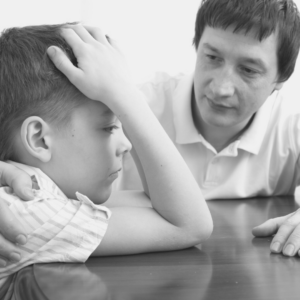ACE Resource Network recently announced the first ever public awareness campaign about adverse childhood experiences (ACEs). At Sound Discipline, we’ve been talking and teaching about ACEs for a long time, and we’re thrilled to see a movement putting resources into spreading the word about ACEs and trauma-informed practices.
The term ACEs was invented with a 1990s study conducted by Dr. Vince Felitti, MD and Dr. Robert Anda, MD in collaboration with Kaiser Permanente and the Centers for Disease Control. Over a two-year period, Kaiser collected data from more than 17,000 mostly white participants which traced adverse experiences in childhood (prior to age 18) — abuse, neglect, and household challenges — and studied the relationship between ACEs and risk factors for disease (early death, heart disease, diabetes, depression, asthma, etc) and overall life course (educational attainment, justice-system-involvement). The results showed a powerful correlation.
 In the last ten years, knowledge about ACEs and how to apply that knowledge to help people has gained traction. Medicine, education, and other fields are beginning to talk the ACEs talk. Thanks in large part to the research and work of people like Dr. Bruce Perry, MD, PhD and California Surgeon General Dr. Nadine Burke Harris, MD on the brain science, trauma, healing, and resilience, the conversation about ACEs is shifting from pathology — “what is wrong with you,” to resilience and healing — “What Happened to You?” Which is the title of Oprah Winfrey and Dr. Bruce Perry’s new book on this topic.
In the last ten years, knowledge about ACEs and how to apply that knowledge to help people has gained traction. Medicine, education, and other fields are beginning to talk the ACEs talk. Thanks in large part to the research and work of people like Dr. Bruce Perry, MD, PhD and California Surgeon General Dr. Nadine Burke Harris, MD on the brain science, trauma, healing, and resilience, the conversation about ACEs is shifting from pathology — “what is wrong with you,” to resilience and healing — “What Happened to You?” Which is the title of Oprah Winfrey and Dr. Bruce Perry’s new book on this topic.
At Sound Discipline, the science behind ACEs greatly influences our work. Every participant in our Reimagining Resilience workshops learns about ACEs, the way they impact our brains and behaviors, and how we can take them into account when working with youth.
The most important thing about your ACEs number is this: it doesn’t define you. As Number Story says on their website, your ACEs number is, “a clue to give you insight into your own personal story. Where that story leads is entirely up to you.”
Knowing your number is just a start, a way that can help you better understand how toxic stress has affected your own brain and body. This self-awareness has unlimited potential, allowing you to identify patterns and challenges you may want to change or overcome. By teaching ourselves and others about the importance of ACEs, we can root ourselves in our personal experiences and gain the understanding to move forward.
